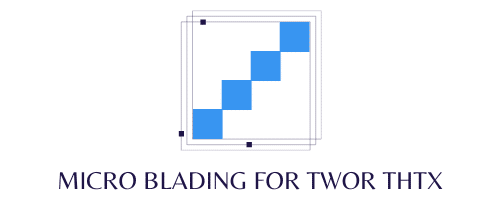Can AI-Enhanced Apps Improve Language Acquisition for UK Immigrants?

In modern times, technology has threaded its way into multiple aspects of our lives. Language learning is no exception. This article will probe into the role of AI-enhanced apps in improving language learning, specifically for UK immigrants. We will explore the merits of technological advancements and discuss their potential in promoting effective language education.
The Intersection of Technology and Language Learning
In the age of digital revolution, technology has emerged as a powerful tool for enhancing learning experiences. This is particularly evident in the realm of language acquisition. Technology-based language learning platforms, notably Artificial Intelligence (AI)-enhanced apps, are now at the forefront of contemporary language education.
En parallèle : What’s the Potential of Ocean Wave Energy Conversion in the UK?
AI-enhanced language learning apps are computer programs that utilise AI systems to facilitate language learning. These apps are designed to adapt to the learning style and pace of the individual user. They offer personalized lessons, real-time feedback, and interactive activities, all of which contribute to a more engaging and effective learning experience.
One of the leading players in the world of AI-enhanced language learning apps is Google. The tech giant’s offerings range from Google Translate, a tool used for translating text from one language to another, to Google Assistant, a virtual assistant that can engage in two-way conversations in various languages.
Sujet a lire : Can AI Assist UK Urban Planners in Sustainable City Design?
Potential of AI-Enhanced Language Learning Apps
In terms of language education, AI-enhanced apps can unlock immense potential. They offer numerous advantages that traditional language learning methods lack.
For starters, these apps provide learners with immediate, automated feedback. This feature is particularly beneficial for language learning as it allows students to correct their mistakes in real time, thereby facilitating faster language acquisition. AI-enhanced apps also offer personalized learning pathways to cater to the unique needs and abilities of each learner. For instance, an advanced English learner might be directed to more complex grammar exercises, while a beginner could focus on basic vocabulary building.
Another significant advantage is the accessibility and convenience these apps offer. Unlike traditional language schools, AI-enhanced apps can be accessed anytime, anywhere, provided one has a device with Internet connectivity. Such flexibility can be especially beneficial for immigrants, who may have to juggle multiple responsibilities alongside learning a new language.
The Role of Data in AI-Enhanced Language Learning
In AI-enhanced apps, data plays a pivotal role. These apps collect and analyze vast amounts of data about a learner’s performance. This allows the AI to make intelligent decisions about the learner’s progress and suggest areas for improvement.
For example, if a learner consistently makes errors in using certain tenses, the app can identify this pattern and provide exercises specifically to address this issue. Similarly, if the app identifies that a learner is excelling at vocabulary but struggling with sentence structure, it can adapt the lessons accordingly.
Data also plays a key role in improving the effectiveness of these apps. By analyzing user feedback and performance data, developers can enhance the app’s features and functionality, thereby creating a better learning experience for all users.
Addressing Language Acquisition Challenges for UK Immigrants
In the UK, many immigrants face challenges in acquiring the English language. This can pose significant barriers to their integration into society and their ability to access education and employment opportunities.
AI-enhanced language learning apps could be an effective solution to this issue. These apps can provide immigrants with a flexible and accessible platform to learn English at their own pace. They can also offer personalized learning experiences that cater to the diverse backgrounds and learning needs of immigrants.
However, it’s crucial to bear in mind that while AI-enhanced apps can greatly aid language acquisition, they should not be viewed as a complete substitute for traditional language learning methods. Face-to-face interaction, immersion in an English-speaking environment, and cultural learning are all critical components of language acquisition that cannot be fully replicated by a digital platform.
The Future of AI-Enhanced Language Learning
Looking forward, the future of AI-enhanced language learning appears promising. With the rapid advancement of technology, these apps are becoming increasingly sophisticated and effective. They are set to revolutionize the way we learn languages, making it more personalized, accessible, and enjoyable.
However, it’s important to acknowledge the challenges and limitations of these apps. For instance, they require reliable Internet connectivity and a certain level of digital literacy, which may not be available to all learners.
Furthermore, while AI-enhanced apps are capable of providing immediate feedback and personalized learning pathways, they are not yet able to replicate the nuanced human interaction and cultural exchange that are integral to language learning.
Despite these limitations, AI-enhanced apps represent a significant step forward in the sphere of language education. As technology continues to evolve, it’s likely that these apps will become an increasingly important tool in language acquisition, particularly for immigrants navigating a new language and culture.
AI and Immigrants: A Tool for Integration
Artificial Intelligence has opened a new avenue for immigrants, especially in the UK, who face the challenge of language acquisition. AI-enhanced apps are not just aiding in language learning but are also acting as a tool for integration into society by aiding in the mastery of English.
Immigrants often have to juggle multiple roles and responsibilities, such as employment, family responsibilities, and acclimatizing to a new environment. Language learning could be taxing on their already stretched time and resources. AI-enhanced apps, with their flexibility and accessibility, can play a significant role in making language learning convenient and personalised.
Moreover, these apps can cater to a wide spectrum of learners – from beginners to advanced learners. For instance, a beginner can use the app for basic vocabulary building, while an advanced learner can use it for complex grammar exercises or speech recognition.
In addition, these apps are designed to provide real-time feedback, allowing immigrants to correct their mistakes immediately. This feature accelerates the language learning process, thereby improving their proficiency in a shorter span of time.
However, it is important to note that while AI-enhanced apps are extremely useful in language acquisition, they should be used as a supplement rather than a replacement for traditional language learning methods. Immersion in an English-speaking environment, interaction with native speakers, and a cultural understanding are all crucial components of language learning that cannot be fully provided by a digital platform.
Conclusion: The Potential and Limitations of AI-Enhanced Language Learning
The advent of technology, especially Artificial Intelligence, has revolutionized the sphere of language education. AI-enhanced language learning apps lend a helping hand to immigrants who face difficulties in language acquisition. These apps offer a plethora of benefits such as flexibility, accessibility, and personalized learning pathways.
The potential of these apps is enormous. They have the ability to cater to individual learning styles, provide real-time feedback, and adapt to the learner’s pace. This can significantly enhance the learning experiences of immigrants, making language acquisition a less daunting task.
However, while acknowledging the immense potential of these apps, we must also consider their limitations. They require reliable Internet connectivity and a certain level of digital literacy, which might not be accessible to all. Moreover, these apps, despite their advanced capabilities, are not yet able to replicate the subtleties of human interaction and cultural nuances integral to language learning.
Despite these challenges, AI-enhanced apps have substantially contributed to language learning. They have made language education more accessible, engaging, and personalised. As technology continues to advance, it is expected that AI-enhanced apps will become an increasingly important tool in second language acquisition, particularly for immigrants needing to navigate a new language and culture.
In conclusion, while AI-enhanced apps are not the ultimate solution to language learning, they are a significant step forward in the realm of language education. They hold immense potential to improve language acquisition for UK immigrants, making the transition to their new life a bit smoother.
